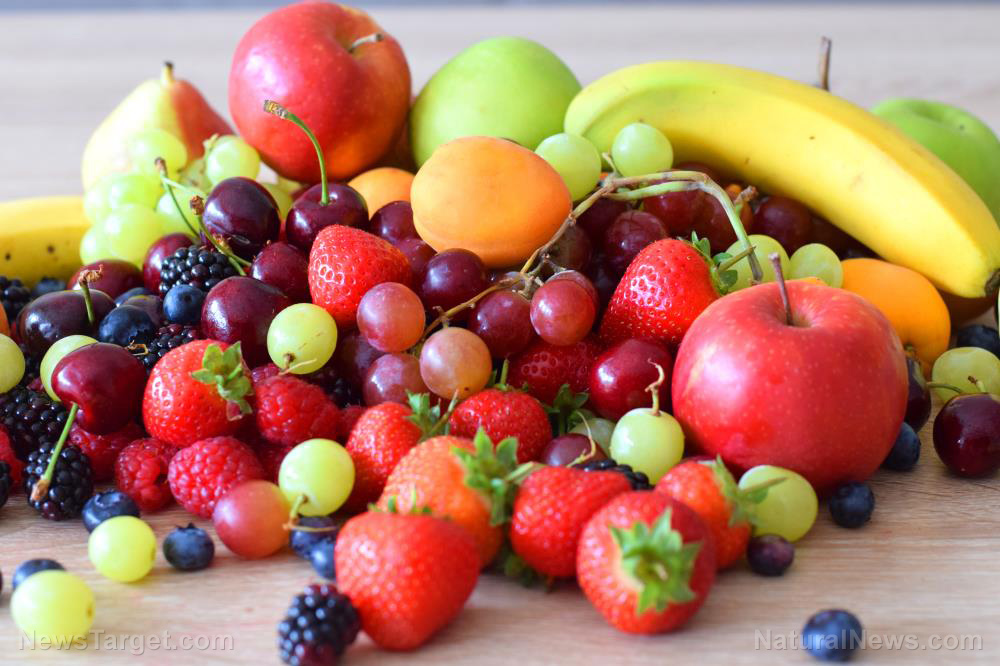Why kombucha is one of the healthiest drinks you can consume, say food scientists
02/26/2019 / By Michelle Simmons

If you are looking for a healthy drink to add to your diet, try kombucha. It is a fermented sugar tea that contains a symbiotic culture of bacteria and yeasts. This fermented beverage has been associated with many health benefits, such as reducing levels of cholesterol and blood pressure, preventing cancer, and improving the bodily functions, such as the liver, the immune system, and digestive system.
In a review published in the CyTA – Journal of Food, researchers from the University of Monterrey in Mexico and the National Institute of Technology Rourkela in India evaluated the health benefits of kombucha and its compounds and metabolites.
Based on the data they have gathered, kombucha contains bacteria that belong to the genus Acetobacter and Gluconobacter, while the yeasts it contains belongs to the genus Saccharomyces. They also found that kombucha contains glucuronic acid and polyphenols. All these compounds, bacteria, and yeasts are the reason behind the health benefits of kombucha.
The researchers found that the protective effect of kombucha against the development of cardiovascular diseases is primarily because of its polyphenol content that prevents the oxidation of low-density lipoprotein (LDL) cholesterol, controls cholesterol metabolism, and inhibits high blood pressure by encouraging smooth muscle relaxation.
The glucuronic acid content of kombucha also contributes to the elimination of chemical substances in the liver and its detoxification, which potentially improves liver functions.
With these findings, the researchers concluded that drinking kombucha tea provides many health benefits, such as heart disease prevention and liver function improvement.
Looking at the other health benefits of kombucha
Studies have shown that kombucha also offers the following health benefits:
- Kombucha is loaded with probiotics: During the fermentation process, a large amount of probiotics is produced. Probiotics provide healthy bacteria in the gut, which are beneficial to health, such as digestion, inflammation, and even weight loss.
- Kombucha may offer the same benefits as green tea: Some kombucha is made from green tea, and research shows that it may provide the same health benefits as green tea. Green tea is rich in bioactive compounds like polyphenols and has been linked to weight loss and blood sugar regulation.
- Kombucha is packed with antioxidants: Kombucha appears to have antioxidant effects in the liver. In a rat study, researchers found that regular consumption of kombucha decreases liver toxicity by at least 70 percent.
- Kombucha can kill bacteria: Kombucha contains good bacteria and kills harmful bacteria. During the fermentation process of kombucha, one of the primary substances produced is acetic acid. Similar to polyphenols, acetic acid can kill many potentially harmful microorganisms. Kombucha made from black or green tea is particularly protective against infection-causing bacteria and Candida yeasts.
- Kombucha may improve Type 2 diabetes: Several studies have shown that kombucha consumption may help in managing Type 2 diabetes. It has been found to slow down the digestion of carbs, which decreased blood sugar levels. It also enhanced liver and kidney function.
- Kombucha has cancer-protective effects: Some studies have revealed that kombucha exhibits protective effects against cancer, such as suppressing the growth of cancer cells. (Related: Kombucha prepared from ginger holds potential for treating breast cancer.)
People who want to try kombucha must know that there are some risks to it. Pregnant or breastfeeding women, or those with a weakened immune system are advised to refrain from drinking kombucha. Some possible side effects of kombucha include stomach ache, nausea, and dizziness. Contaminated or over-fermented ones can also cause serious health problems.
Read more news stories and studies on healthy food and drinks by going to FoodCures.news.
Sources include:
Tagged Under: blood pressure, cardiovascular health, healthy beverage, healthy drinks, Kombucha, kombucha tea, Liver, wellness




















